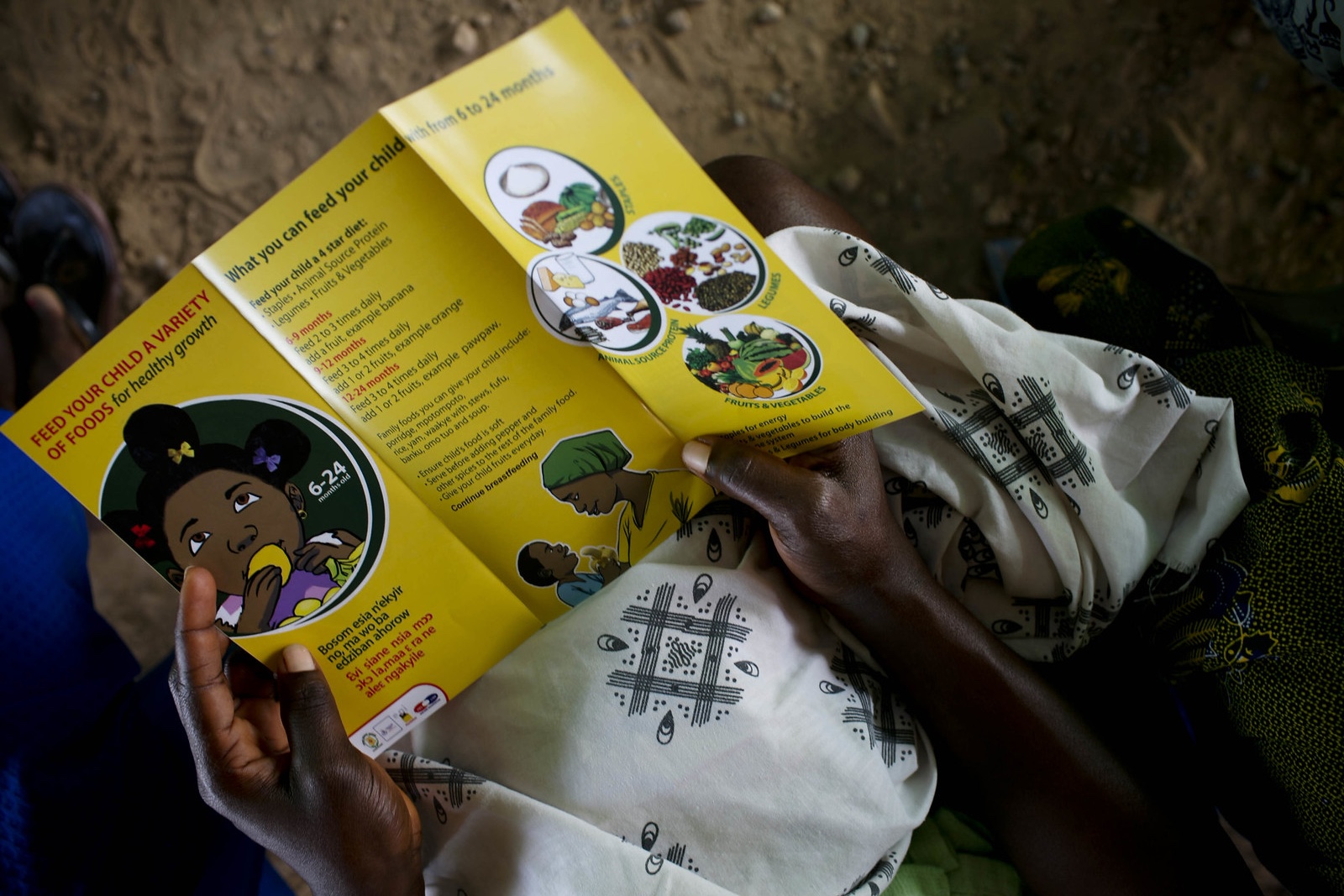It takes a village: Encouraging Women to Use Maternal Care through Community Involvement

Kate Holt for JHPIEGO/MCSP.
A woman reads a pamphlet at a community health meeting in Akentenchie Takoradi, Ghana | Kate Holt, JHPIEGO/MCSP
Study Context
While maternal mortality has declined in past decades (from 760 per 100,000 live births in 1990 to 319 per 100,000 in 2015), the pace of progress has been slow and a significant effort is still required to achieve the Sustainable Development Goal Target of 70 per 100,000 births in 2030. Some of the key factors that contribute to maternal mortality in Ghana include inadequate knowledge and benefits about antenatal care (ANC) and in-facility birth, socio-cultural factors, poverty, and poor access to quality health services in remote areas. In addition, women often do not seek maternal health care in Northern Ghana due to lack of financial support from partners and mothers-in-law, cultural factors related to performance of traditional rites that delay ANC onset, and lack of birth preparedness.
Study Design
The research team is implementing an intervention that focuses on encouraging pregnant women to seek prenatal care early and promotes use of modern maternal care among pregnant women and their support networks, taking into account deeply entrenched local beliefs. The intervention also tests whether developing a strong and actionable birth plan, involving key household decision makers in making the plan, and interacting frequently with skilled providers to prepare the household for the birth, will increase in-facility births and improve health outcomes. The study involves three cross-randomized interventions: 1) community education at durbars (village meetings), 2) phone calls to reinforce key messages and monitor pregnancy, and 3) home visits to check on the pregnant woman and prepare birth plans together with husbands and mothers-in-law. The main study outcomes of interest are the use of maternal health services (number and timing of ANC contacts, where birth took place,, if postnatal care was received) and health outcomes (whether baby was born alive, whether baby was premature, and birth weight). This study was developed in close partnership with the local health policy experts and health providers, who identified traditional and cultural beliefs that still loom large in the local context as issues that undermine national policy interventions designed to address maternal health issues.
Results and Policy Lessons
Results forthcoming.




